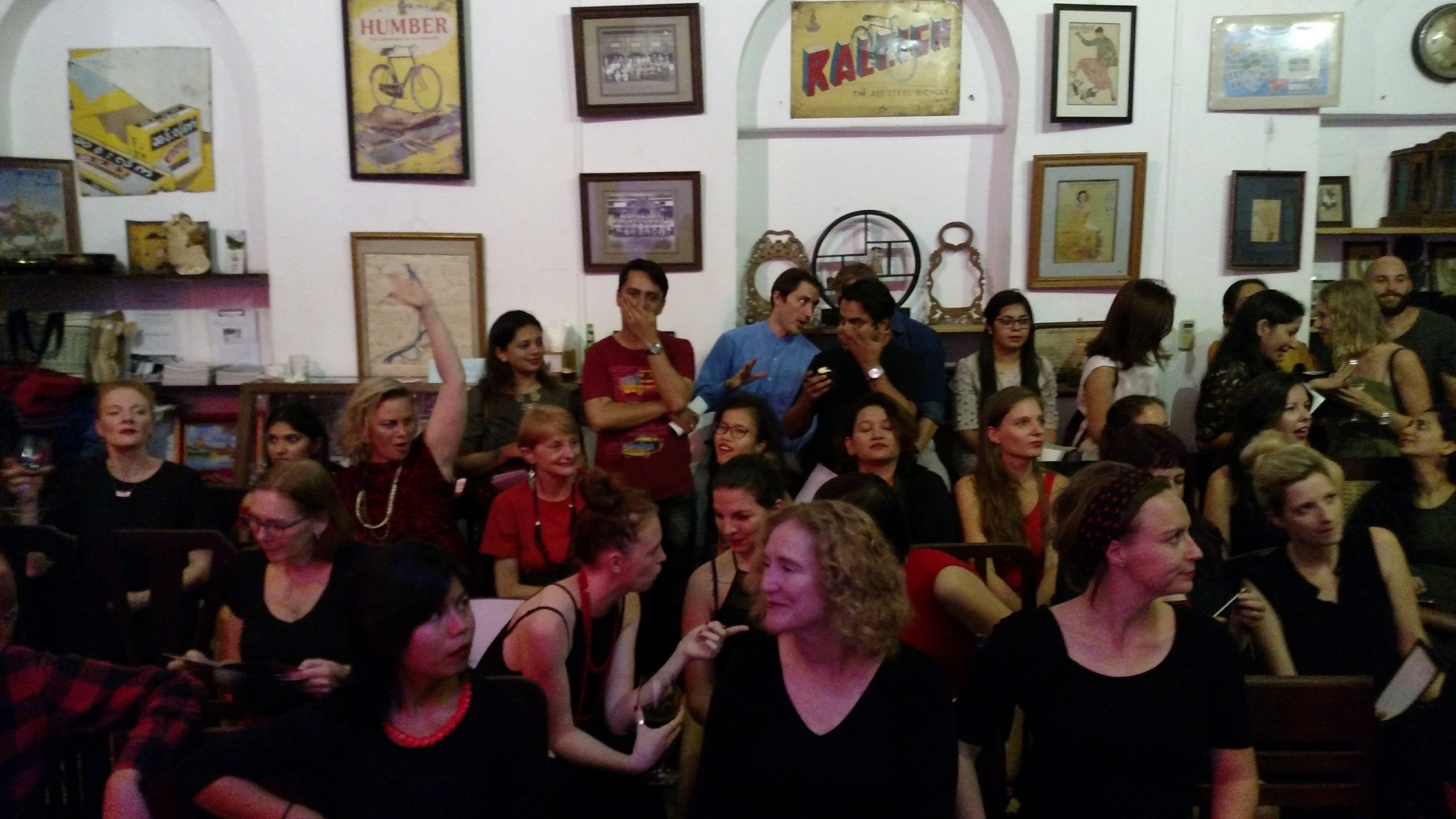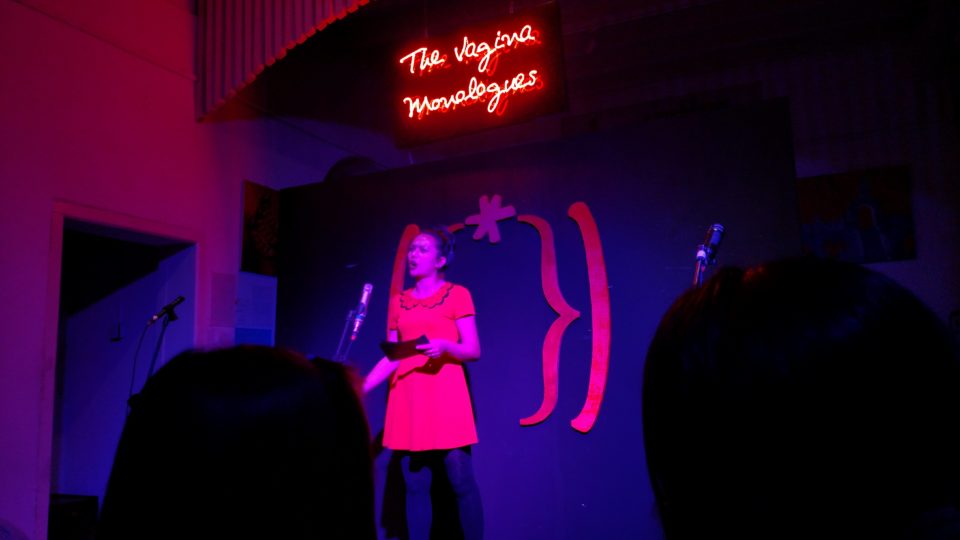More than 20 years have passed since The Vagina Monologues was created, and like an aging female celebrity in a sexist society, some are asking, “Aren’t you getting a bit too old to be relevant?” In Myanmar, the answer is a resounding “No!”
In celebration of the 20th year anniversary of V-Day, a non-profit organization that works to end violence against women and girls through proceeds raised from productions of The Vagina Monologues, Myanmar put on its very first show last weekend. Performed by an ensemble cast of 26 women, entrance into the show was in such high demand that the original two-night run was extended to a third night on Sunday to accommodate those who were turned away from Friday and Saturday’s sold-out shows.
The event was loud, exciting, and defiant in the face of taboo. Entrance was free, but once inside, playgoers were presented with a variety of opportunities to donate money to Strong Flowers, a Myanmar organization that provides reproductive and sexual health education services and resources, and the Myanmar Women’s Self-Defense Center, including purchasing cupcakes decorated with vulvas sculpted out of fondant.
The play, though performed in English, was tweaked to include references to thanaka (a local face creme) and Mogok rubies, much to the delight of the audience. Vaginas, vulvas, and the other miscellaneous reproductive organs were referred to in a variety of languages. Crude and derogatory slang was mixed in with medical terminology and beautiful metaphors.
The audience also became intimately familiar with the terms yaw ni, a hpou, and mout paung, refuting that bizarre belief held by too many non-Myanmar people that there is no word for vagina in the Myanmar language.

Though the organizers acknowledged that the play, written by the American feminist activist Eve Ensler, is “Western-centric,” it became clear once it began that many of the issues addressed in the monologues transcend time, space, and culture.
Audience favorites included “My Angry Vagina” and “The Woman Who Loved to Make Vaginas Happy.” Both monologues addressed the taboo surrounding vaginas and the people associated with them. Whether it was messages of vaginal uncleanliness, badly engineered menstrual products, denial of women’s sexual pleasure, or even the simple freedom to make as much noise as one wants during orgasm, the message was clear: The desire for a healthy vagina and good orgasms is universal.
READ: Meet the women who want at least a few rapists to be executed
However, it was one of the more subdued monologues that evoked the closest comparisons to life in Myanmar. In sharp contrast to many of the more animated and impassioned monologues, “My Vagina Was My Village” was hauntingly quiet.
The performer, with her soft Burmese accent and even softer voice, described the horrors of rape so many women endured during the Bosnian Genocide, but even knowing that, it was hard not to imagine it as a Myanmar story. Her performance was evocative of the experiences of so many Shan, Kachin, Rohingya, and other Myanmar women living in conflict regions today. More than anything, this monologue demonstrated the enduring relevance of The Vagina Monologues, which have for more than two decades given a powerful, penetrating voice to women around the world.




